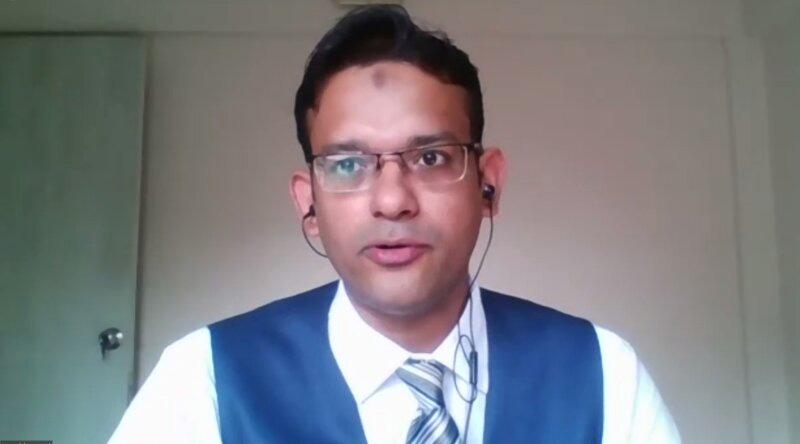 Image
Image
We cannot generalise a society or a country: Author Hamid Ansari on Pakistan
Techie and author Hamid Ansari, who was caught in Pakistan being accused of being an Indian spy, wrote about his ordeal and suffering days in the South Asian country in his book Hamid. In an interaction with senior journalist Nidhi Razdan at Kitab, an event organised by Prabha Khaitan Foundation and presented by Shree Cement, in late November, Ansari bared his thoughts. IBNS-TWF correspondent Souvik Ghosh brings excerpts
What made you decide to write your story in a book?
Actually when I was behind bars, to be precise in solitary confinement, facing torture and hatred, the only mode of communication was by writing on bathroom walls. So I thought this mode is one through which I can communicate to everyone. Throughout the six years (of my jail term), the things that I have faced, it changed my perception also. I met both good and negative people so I wanted everyone to know there are both good and bad things but it depends on how we look at them. When I was in prison, Rakhshanda madam (Rakhshanda Naz, Pakistani journalist) used to inspire me to write about my experiences.
.jpg)
Hamid Ansari
Give us a brief summary of how you landed up in Pakistan, get arrested and end up accused of being a spy!
It had started with an online platform which no longer exists. So using the platform, I found a girl and came to know each other. I had developed a soft corner for her. On one fine day, she had urged me to save her life as she had claimed she was going to commit suicide. Then she had suddenly disappeared and that's when I had started searching for her on Facebook. Then I came to know about her from a journalist that the girl was made a scapegoat for the murder her brother had committed. The journalist had assured me of all help to reach there and when I stepped into Pakistan, he had backstabbed me by calling the agencies, which caught me accusing me of being an Indian spy.
.jpg)
Nidhi Razdan
How did you get hope on each day in prison?
Initially I was losing hope because I was told that the minimum punishment was 35 years which can also extend to death penalty. I was completely helpless. I didn't get any support or even a consular access. I couldn't contact the embassy. There was no help. Though I felt I was doomed, few people in the investigating team had updated me that my case was going in favour of me. So at one point, I thought maybe the truth will come out and I will get justice someday. So that was the only hope I had. When I was shifted to a civil prison, I could contact Rakshanda madam and the lawyers. So all these things had started adding as a hope. These small hopes started motivating me.
.jpg)
(Clockwise) Hamid Ansari, Geeta Mohan, Nidhi Razdan, Rajdeep Sardesai
Were you able to write down your thoughts?
In solitary confinement, I had no access to pen and paper. Once I was shifted to civil prison, I had access to pen and paper. Then I started writing down my thoughts.
How are you doing now? It was definitely not easy to get back to your feet.
Once I came back, people had an impression that anyone who was behind the bars is a criminal. No one wanted to know the reality behind the incident. People do not accept me for the capabilities I have. I was told in Pakistan during interrogation that my nationality was the only crime. So I am facing difficulty in standing on my feet and getting stabilised.
.jpg)
And what are your feelings about the people of Pakistan now?
While some people during the interrogation in Pakistan were only asking me about my alleged mission considering me as a spy, there were others who had morally boosted me. In the civil prison, I was attacked by some people and was also protected by others. People in Pakistan are also good and chanted "India Zindabad" and also expressed their admiration towards Sachin Tendulkar, Virat Kohli (Indian cricketers) and others. The way they look at us is completely different from what we think. Good and bad are there in every individual, so we cannot generalise a society or a country.
.jpg)
Top Headlines
-
Literary
Culturist Sundeep Bhutoria unveils anthology When Gods Don't Matter at Jaipur LitFest 2026
January 17, 2026
-
Literary
Sona College of Technology hosts Think Salem 2025: To spur startup opportunity from Tier-2 Cities
December 23, 2025
-
Literary
A Defiant Voice Remembered: Jyotsna Mohan at The Write Circle, Dubai
September 27, 2025
-
Literary
Feminist pioneer Abala Bose was both a subscriber and critique of colonial ideas: Author Saptarshi Mallick
August 26, 2025
-
Literary
The Sona Story: The Textile to Tech Journey of Chettiar Industrialist C. Valliappa
April 22, 2025
-
Literary
The Sona Story celebrates life, legacy of C. Valliappa
April 05, 2025
-
Literary
Acclaimed Author Soma Bose continues to inspire with her powerful storytelling
March 07, 2025
-
Literary
Terrorists behind Nagrota attack had a jihadi sentiment: 'Nagrota Under Siege' author Bhaavna Arora
February 26, 2025
-
Literary
I am a lifelong Felu-da fan, says Arindam Basu unveiling truth-seeker Prithviraj's intriguing world in 'The Calcutta Covenant'
February 18, 2025
-
Literary
Women decide Indian politics now: Veteran journalist Rajdeep Sardesai at Kitaab talk in Kolkata
January 12, 2025
